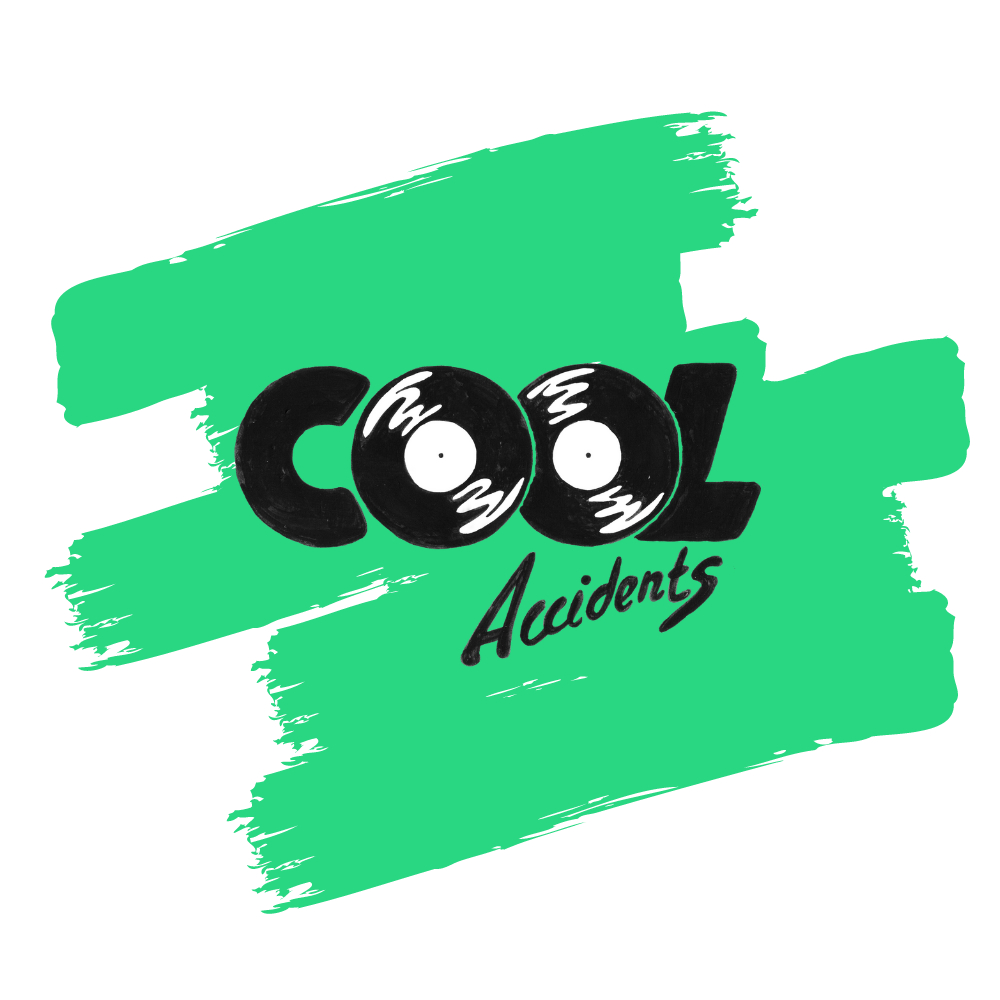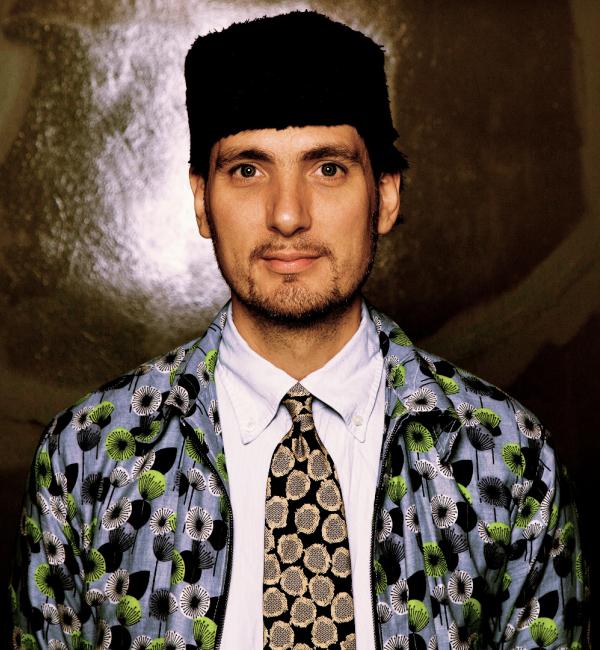RATHER BE DEAD
“I’d rather be forgotten, than be remembered for giving in” - Summerholidays vs. Punkroutine, ‘The Shape of Punk to Come’, 1998.
Popular culture adores an unblemished corpse. Not unlike their fingernails and hair, the unlived potential of the prematurely dead continues to grow as they stiffen into memory—until history is devoured by myth. Ume’s Refused were—until relatively recently—exactly this kind of corpse. The band broke up young and suddenly, the same year they released their seminal, seditious 1998 album 'The Shape of Punk to Come’.
[AUTHOR’S NOTE: In the context of 1998,TSOPTC wasn’t so much an exploration of the boundaries of punk rock as an evisceration of the genre’s entire anatomy. It’s knotted fist of styles and intents were romantically charged enough, but became supercharged in their long death after a comparatively short life that begun in Northern Sweden and ended abruptly in a basement in Harrisonburg, Virginia, in front of a small cadre of police and a hysterical crowd.]
Almost 20 years later and the band still attracts cult-level reverence and a rabid fanbase spanning multiple generations. So little wonder that David Sandström, Refused’s drummer and one of the band’s chief songwriters, is dissatisfied with playing dead.
“Right now it might feel like we’re spoiling the pristine punk purity of TSOPTC but I don’t think it’ll feel like that once we’ve got this thing going…” Sandström exhales and pauses at the sharp end of a statement that has grown ever keener since the band announced they were working on material for Refused’s first album in 17 years. Before their 2012 reformation, Refused were a kind of idea, something woven out of smoke. But now, the flesh-and-blood humans who comprise Refused seem to be beginning to feel the duress of a legacy that was erected in their absence.
As a sort of congress of culture and politics, the legacy of Refused performs the duel functions of inspiration and purification. It is a projection of unremitting dissonance, unfettered youthful energy and an artful—and seemingly inexhaustible—outrage. And in premature death this remained unmarked. But now, palpable currents of dread are coursing through Refused’s fanbase. Dread that seems to be articulated like so: 'They killed themselves off once and now they’ve returned to assassinate the only remaining piece of their greatness—our (as in the fans’) untarnished memories’. Sandström seems pointedly aware of how their inspirational function has grown, post-mortem.
“I was always sort of annoyed at that image of us, especially I think in America of: 'they were so stern about their convictions and had such integrity’…[it was] an image of young, angry men that I never agreed with. It was a lot more complicated than that.”
The foremost complication has to be the very idea of punk under glass—the museumification of what is essentially music of dissent. Sandström attests to this static view of Refused as what essentially “provoked” the band to reform. “I sort of like destroying pure things. I don’t see absolutes anywhere in the world”, Sandström murmurs. I think the world is more interesting and more complex than that.“ And again Sandström is right, this world does get more complex again. As a punk band, the heraldry swirling around the memory of Refused doesn’t merely neutralise what is—by definition—an active or even antagonistic force; it violates the very thing it aims to worship. For more information on the nature of the violation look no further than Refused’s very latest single, 'Dawkins/Christ’, a song that levels its critique at messianic atheism almost as much as organised religion. Essentially it warns of the seductive power of Gods, wherever people find them. And herein lies the violation. In sanctified death, Refused—staunchly opposed to rulers of any kind, religious or secular—had become a kind of altar for devoted fans to fervently worship at.
I’ve paid scarce attention to the views of the actual band on the subject of their legacy so far, but for good reason. They were absent for it. In their absence, Refused became a distillation of the adulation and opinions of others, existing only in the way that people chose to mythologise them. When I ask David Sandström whether the reformation of Refused was a way for it’s members to reclaim their own band, he answers with one one word: "absolutely.”
This reclamation is being declared in the form of Freedom—ten tracks that comprise the only true treatise on what Refused is. “I was 22 when we recorded TSOPTC” Sandström admits, “and now I’m 40…that was one band and this is another band…I think it’s two different things…”
Old Friends/New War
“Thought is blood, I am born and reborn” - 'Thought is Blood’, Freedom, 2015.
Refused, as they sound in 2015, isn’t mere sonic renovation. Nor is the fully-conscious distance of their new sound from their old designed to make their new material incomparable and impervious to criticism. Their radically different sound is simply a result of what collectively poured out, according to Sandström.
“We didn’t decide it was a Refused record. We heard suddenly—'actually these are Refused songs’, and were quite surprised actually…it just started with us making music.”
Although for me, an irresistible question remains: How can a band make an album in what seems to be a downright hostile creative environment—amid an unimaginable climate of anticipation and expectation?
“It’s funny” Sandström remembers, “we realised when we were first asked that question of whether the legacy of TSOPTC was a burden and it never occurred to us. We had never thought about it…I never felt threatened by TSOPTC…” In fact, according to Sandström, the only creatively toxifying elements facing Refused in the making of Freedom, were their own towering standards and “the stress [of] trying to live up to [their] own expectations” during the writing process. “It goes to ridiculous extremes sometimes” Sandström admits, “and that’s the hard part for us, not anything we’ve done in the past.” Sandström makes particular mention of the natural antidote to external pressure—shared internal interest. “Kris [Steen] and I would just have coffee and talk about some song or a part of a song, like a High on Fire song or a QOTSA album…about some Led Zeppelin bootleg or Miles Davis live record…when we were together there was so much stuff we were interested in…” But as soon as they went to record the album (largely produced by iconic Australian producer Nick Launay) the towering standards and intensity returned.
“We went to LA for six weeks and worked day and night. We were meant to relax and have fun in LA when we had time off but didn’t get any time off until we got home.” But still it wasn’t quite right, and at Sandström and Kristofer Steen’s behest, 'Electra’ and '366’ were reworked by Swedish producer Shellback, a producer more well-versed in pop than in punk. But again, Refused’s unremitting nature paid off.
“Instead of suggestions, he just sent us two versions of the songs. They were quite different. 'Electra’ was a reworking of the song and that fucked with us because his version was so visceral, so violent and we realised we had to do them over.”
But unrelenting standards and an insatiable hunger are what makes Refused so vital, 17 years on. From a distance it seems like some kind of slowly unfolding miracle that they managed to become a real band, to wrap fresh skin around the skeleton of their project without seeming like some meticulous cover band of themselves.
[AUTHOR’S NOTE: I mention this in the spirit—or rather against the spirit—of other recent momentary and semi-permanent resurrections (At The Drive-In and Death From Above 1979 both spring to mind) who either reenact a heaving parody of their former band or simply pretend like a decade of music hadn’t just slipped by them like a Xanax in the dark.]
Mercifully, Refused drag everything with them through the main street. Freedom’s 'Servants of Death’ is clearly haunted by the garage swagger of singer Dennis Lyxzen’s work with The (International) Noise Conspiracy. Even the pace and sobriety of his pacing seems often closer to the New-Wave snarl of Lyxzen’s more recent project INVSN than early Refused. Likewise Sandström’s own 'Words Rebel and Hiss’ with it’s heavily stacked vocals seems like an early approximation of the key elements in 'War on the Palaces’. His old band TEXT makes similar early marks with the song 'The Huntsville Treaty’ —the same kind of flaring percussion and modulated voices featuring heavily on Freedom. Sandström even cites Kristofer Steen’s role as Stage Director for Sweden’s Royal Academy of Opera as instrumental in how the band have shaped their live show. There’s little trace, however, of Lyxzen and Sandström’s other shared punk project AC4, but there’s a cooperative musical growth on Freedom that is undeniable, and a barely-contained brashness that still managed to find its way into my bones upon first listen. Sandström confirms: “The songs are designed to make people have that visceral reaction to them, hopefully.”
Youth-obsessed popular culture and its strange homesickness for eternal adolescence grows in potency every year as it continues to drive consumer profit. The global political climate—particularly as it pertains to the EU and the band’s own continental political environment—has certainly worsened over the last decade. It seems strange, perhaps a bit mad, to release an album as a band of heavily politicised forty year-olds at this particular point in history. But for Refused, defying expectation and dismantling delusion seems to be a part of their DNA. They might be right on time.
Refused’s Freedom is available now where all long overdue sophomore albums that were worth the wait are sold | streamed





